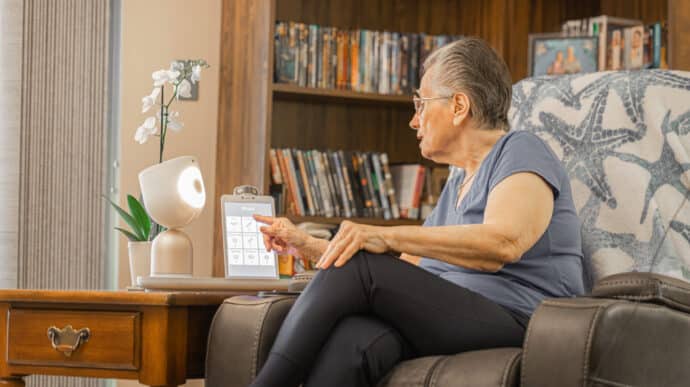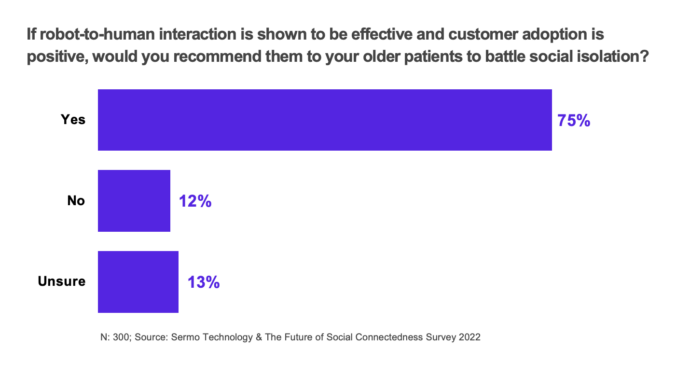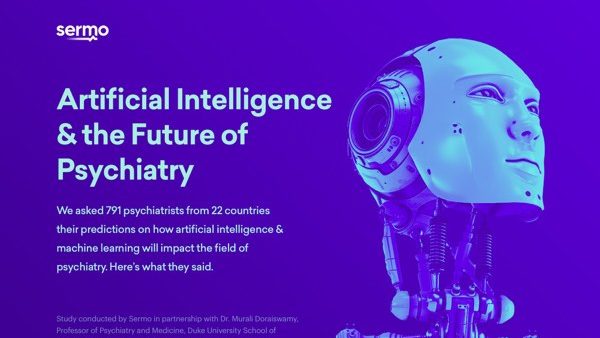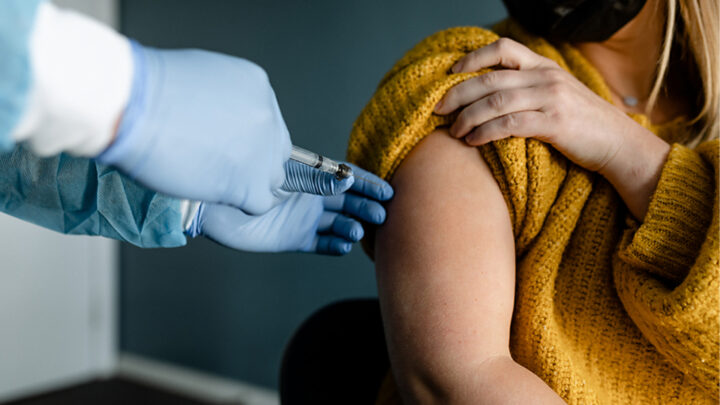
Approximately 1 billion people worldwide are lonely – including more than 40% of seniors. Loneliness in the elderly is a major risk factor for physical and mental ill-health as well as early death. For example, a 2023 study of 400,000 middle aged and older adults found that both social isolation and loneliness increased the risk for hospitalization or death from heart failure by 15-20%. In the US alone, there is a shortage of some 450,000 senior caregivers, exacerbating the loneliness crisis.
Newer AI-enhanced robots with better algorithms, speech and vision are coming closer to having a “personality” and being able to build personal relationships as well as adapt their behavior based on experience. Clinical trials as well as systematic reviews of social robots for older adults have found promising benefits in many areas such as reduced stress and loneliness as well as improved health outcomes.
Sermo launched a first-of-its-kind survey to 307 physicians across 25 countries and 40 specialties on the potential benefits/risks of companion robots to alleviate social isolation in seniors.
Sermo partnered with leading academic experts to field the survey in recognition of recent advances in social robotics and generative AI, timed with National Robotics Week this April.
Advising Sermo on the survey were Dr. Murali Doraiswamy, a physician expert on healthy aging at Duke University School of Medicine and Dr. Elizabeth Broadbent, a psychology expert on human-robot interactions at the University of Auckland.
Key findings of the survey were:
- 69% of doctors felt robots can provide companionship and augment the impact of human-to-human interaction for lonely older adults; 16% disagreed and 15% were uncertain.
- 75% of doctors would recommend them to their patients if robot-human interaction were found effective and customer adoption is positive. 12% disagreed, 13% were uncertain.

- 70% of doctors felt the main benefits would be to improve mental health; 46% felt robots would fill gaps in senior-care staffing; 41% felt they would reduce medical expenditures.
- 70% agreed that insurance companies should cover the cost of companion robots if they can alleviate social isolation. 30% disagreed.
“We live in a society bombarded with social media but starved for true friendships,” said Dr. Murali Doraiswamy. He added, “We all need someone who can care for us.”
Doctors also identified some ethical & safety concerns of AI
- 63% feel AI technology cannot replicate the complexity of humans
- 36% say it is not “real” love or companionship
- 21% loss of privacy/data concerns
- 12% make patients lazy
“It is important to bear in mind that the goal is to not replace human to human contact but to develop robots that enhance it,” cautioned Dr Elizabeth Broadbent.
Sampling of physician views on pros and cons of companion robots
Pros
- “The ability to have a talk and the ability to consistently give positive reinforcement”
- “…Motivate them, also recognize red flags in terms of suicidal thoughts, etc.”
- “First aid support, call emergency unit, giving position and parameters”
- “Medication reminders, appointment reminders, home security monitoring, help with cooking, help with cleaning, help with internet access, and computer use”
- “Knowing the family history and reminding the patient of his/her memory”
- “To help establish healthy routines including washing and physical activity”
- “In the short term, the ability to engage in human-like conversation. In the long-term, the development of genuine consciousness and emotions”
Cons
- Robots are not a substitute for the warmth, personalized care, touch, knowledge, and experience of a human-being”
- “I think there is a risk in busy care facilities that they will be used as substitutes for people”
Methodology
Results were collected through a combination of a Sermo physician-only platform poll and a RealTime survey. Respondents are all triple-verified physicians across 25 countries and 40 specialties. Survey limitations include sampling bias, inability to deduce causality, confounding variables not measured, and other factors. Some questions had fewer than 307 respondents.
The survey provides the first global snapshot of the current state of thinking among practicing physicians about the risks and benefits of future robotic technologies for alleviating isolation.
Dr. Doraiswamy has served as an advisor to several advocacy groups and businesses, including Sermo. Dr. Broadbent is a consultant to Soul Machines Ltd, an AI company.














